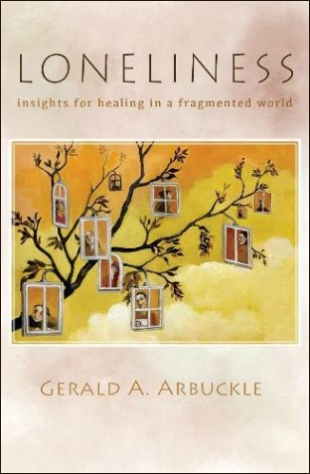Gerald Arbuckle is co-director of Refounding and Pastoral Development, a research ministry in Sydney, Australia, and a noted scholar in both theology and anthropology. In the opening chapter on "Pondering the Meaning and Power of Loneliness," he defines this experience from a cultural anthropological perspective as "the yearning for acceptance and connectedness when important others or desirable things are missing."
He sees loneliness as one of the four existential anxieties — together with death, fear, and meaninglessness.
To enrich and amplify these meanings, Arbuckle also notes that this problem is not synonymous with being alone or with boredom; Robert Weiss calls it "a relational lack." He also looks at takes on loneliness from psychoanalyst Melanie Klein, four philosophers, the mystic St. John of the Cross, and Biblical references.
Following his explanation of the four steps toward loneliness, Arbuckle presents a thought-provoking connection between individualism and the myth of the American Dream. Alexis de Toqueville, Philip Slater, Robert Bellah, and others probe this cultural phenomenon which has been explicitly showcased in F. Scott Fitzgerald's 1925 novel The Great Gatsby.
In the closing chapters, Arbuckle reviews poverty as a trigger of loneliness, the loneliness of strangers who are excluded from established communities, loneliness in healthcare institutions, and the feeling of being outsiders experienced by those serving others in the church and elsewhere.
We commend the author for bringing such clarity, depth, and daring to the well-worn topic of loneliness!
